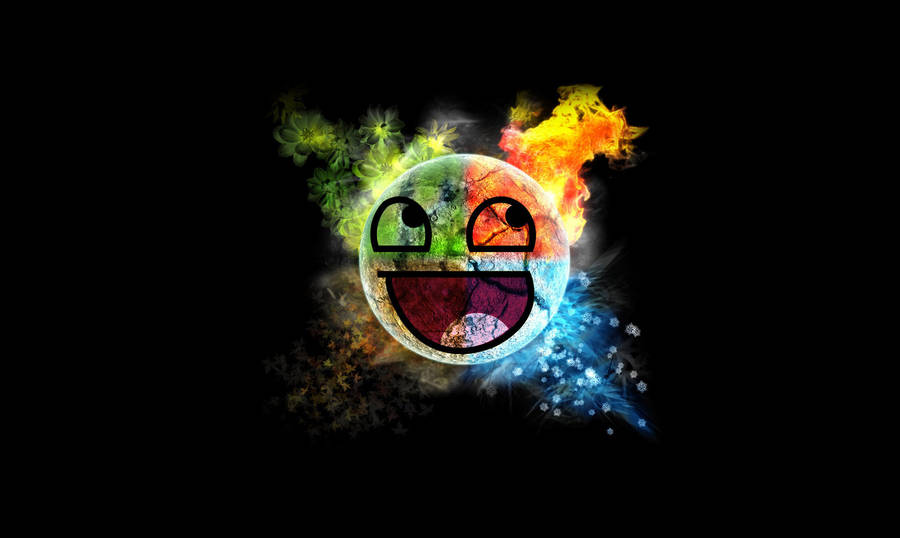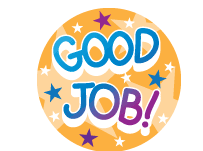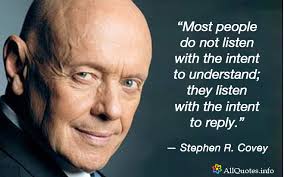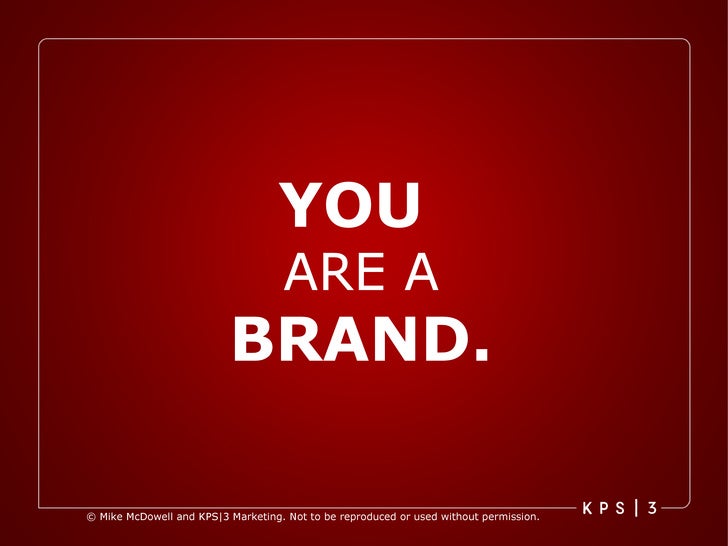On Friday 10th February, we held our first BIFM Channel Islands event for 2017.
This was the first event with me as deputy chair of the branch, so I was excited and nervous at opening the day and introducing the speakers and the links in-between! We had a great line up of speakers to present on our topic of people. It was interesting to hear people approaching this from a HR perspective but in reality the subject of people is one we all need to understand more about as we all deal with people in everything we do.
We were privileged to have Liz and Dave Kentish with us from the UK. Liz is past deputy chair of the BIFM and together they run their business Kentish & Co. Liz started the first session of the day talking about Cognitive Dissonance – where situations involve conflicting attitudes, beliefs or behaviours – why do we do something even though we know it’s not right?
We had two lists of questions/statements to answer – for example: ‘texting when driving is dangerous’ – I’m sure most people would agree with that statement and yet when we looked at the second set of questions, the example was ‘I have texted whilst in control of my vehicle’! – have a look at the link here to their blog post where you can find out more and look at the questions/beliefs we looked at in the session. https://www.kentishandco.com/cognitive-dissonance-keep-eating-doughnuts/
 Around the room people shared their responses and it was noted how we tell ourselves stories to justify what we do or the way we think. We know what the right thing is to do but we don’t always do it – we have a personal choice to change our behaviour but we need to make a decision – in the words of Yoda “Do or do not, there is no try”.
Around the room people shared their responses and it was noted how we tell ourselves stories to justify what we do or the way we think. We know what the right thing is to do but we don’t always do it – we have a personal choice to change our behaviour but we need to make a decision – in the words of Yoda “Do or do not, there is no try”.
Our next speaker was Andi Raziya, front of house manager at the old government house hotel. Andi was enthusiastic and entertaining as she shared her passion and experience for customer service. She explained how looking after our internal customers (the staff) means that they will in turn look after the external customers (our clients/guests). Customer service is all about how it makes you feel, what makes you feel good?, the customer feeling good about the service or product.
Andi gave 5 points around the best customer service:
1. Understanding people – you don’t know what people have been through to get to you. Ask questions and find out what they like – what do they enjoy? How can you tailor what you are doing for them in response to this?
2. Recognising their needs – treat each customer as a VIP – what you find out in the first point will help with knowing their needs – Andi gave the example that a guest travelling for business might need a room with a larger desk for working than perhaps a couple on a romantic break who might like champagne in their room!
3. Communication – the most vital requirement for all organisations – makes us or breaks us.
4. Training – Andi told us how they look for personality within the person when recruiting as they believe they can teach and develop the other skills. Training empowers staff and boosts team confidence, it makes it a happy place to work with happy staff who make more money.
5. Rewards – the rewards programme involves the staff themselves, voting for their peers. It motivates good work with instant recognition vouchers and an employee of the month scheme.
 Andi told us how the founders of the Red Carnation Group are investors in people, they know the people who work for them and give them opportunities. They believe in people and lead by example.
Andi told us how the founders of the Red Carnation Group are investors in people, they know the people who work for them and give them opportunities. They believe in people and lead by example.
A great way to be and an encouragement to those of us working in teams, to encourage our teams, to build the level of service we provide to our customers, whether they are internal or external – treat each customer as a VIP must be something we remember!
Richard Hamilton from BIS Consultants brought another topic to us – “Understanding Relationships – what works and what doesn’t”. Richard started by encouraging us all to take responsibility for ourselves and to be honest during this session in order to get the most out of it. Author John Powell said “communication works for those who work at it”. We looked at communication and how we send and receive messages but do we understand and accept them? Does the person we communicate with receive and understand it in the way we send it and therefore perhaps how it is accepted or otherwise depends on this. Richard got everyone involved by drawing a ‘charting communication’ picture. With ourselves in the middle, we drew other people with whom we communicate regularly but then looked at those lines of communication – what are the issues? Are they open lines of communication? Perhaps just manageable, we just do what we have to. Or maybe they are erratic – you don’t really know what kind of response you are going to receive from that person or worse still, a closed line – where communication has broken down, there’s no trust, no relationship.

Richard explained how listening is a huge part of communication – Stephen Covey quote “most people do not listen with an intent to understand, they listen with an intent to answer”. If we ask someone how they are, do we really want to know the true answer or are we hoping they will say they are fine and we move on? Be prepared to stop talking and be interested!
We were then challenged to look at our charts of communication again with regards to how we impact others. How our attitude affects our behaviour which in turn can affect the other person’s attitude and their behaviour, and it continues. Perhaps the issues we have with our lines of communication with others is down to how they feels the line is coming back to us – do people come to talk to me and not always know what kind of response they are going to receive? We briefly looked at transactional analysis – the parent, adult, child responses and how this will affect effective communication. Be self-aware, if you’re having a bad day, don’t set up a meeting you know will be difficult. Give yourself the advantage!
Communication doesn’t just happen – think about it, understand it, work at it, practice it
After a short break for tea and biscuits we were back onto the agenda with Phil Eyre from The Learning Company bringing his presentation – “Creating Purposeful Work: connecting team passion with the needs of your organisation”. Phil started with the statistics, worldwide, only 13% of employees are engaged at work! Not only are the remaining 83% not engaged, 24% are actively disengaged! This is costing organisations money but also people are frustrated and not fulfilled.
So many questions – why are we here? What makes us unique? What drives you?
Finding our purpose is key – autonomy over our ability, time and resources and gain mastery in our purpose will be motivating.
Phil shared a story about President John F Kennedy, visiting NASA in 1962, noticed a janitor carrying a broom – he went over to the man and asked him what he was doing. The janitor replied, “well, Mr President, I’m helping put a man on the moon”. We all have a part to play, a purpose.
What is the purpose of facilities management? It’s to make something happen…..Phil called it the ‘unseen essential’. He encouraged us to think of the ‘great’ reasons for being in FM. When teams understand their purpose, great things can happen – a purposely connected team will perform well. They are move fulfilled, there is less staff turnover, they become more creative and more engaged.
Phil lead us in some workshops – helping us to think more about purpose. When we were young, what did we want to do for a job – what qualities were associated with that role and how does that relate to what we do now? As homework, we were encouraged to think about what our purpose in life is – looking at our strengths and qualities.
We all have a curriculum vitae – the course of my life…..how about a propositum vitae – the purpose of my life? What would a PV look like for a facilities manager? What characteristics, passions, motivations, mastery, unique skills do you want to see?
And finally, how do you know what your team cares about? What are you doing to find out?
It was a challenging and thought provoking presentation – the people in the room engaged with the workshops and it gave some food for thought which I hope will continue long after the training day itself.
Over lunch there was an opportunity for networking – an ideal opportunity to discuss further the topics from the morning session as well as making new contacts and sharing stories.
 Liz started the afternoon session with “Sparkling Moments”. This is a solution focus approach to coaching based on the principals of not fixing what isn’t broken, when you understand what works, do more of it but if it’s not working then do something different.
Liz started the afternoon session with “Sparkling Moments”. This is a solution focus approach to coaching based on the principals of not fixing what isn’t broken, when you understand what works, do more of it but if it’s not working then do something different.
Liz got everyone into pairs – the first person asked the second to tell them about a personal ‘sparkling moment’ at work over the past few weeks, a time when they felt really good about being there. What made it sparkle? What did they do? What did others do? The first person listened for all the details, the evidence being explained to them. Then they swapped over and the second person asked the same questions of the first. Then it was time for feedback – what did their story tell you about their excellent qualities, skills and resources as a person? They shared what they had heard and complimented them. When they had said thank you the pairs swapped over for feedback to the other person. The third part of this exercise was to find a small, yet specific action which will increase the likelihood of more sparkling moments. As a large group we then shared what we found interesting and surprising about what we had heard/said. It was interesting that it is so easy to lose or forget those sparkling moments because of general ‘noise’ in our day to day. Liz left us with the challenge to encourage others to look for their sparkling moments.

Jo Cottell from Guernsey Mind was at the event to speak on mental wellbeing in the workplace.
You will know from my previous posts that this a subject I have personal experience of and I could relate to so much of what Jo was speaking about.
Guernsey Mind is a local charity promoting positive mental health.
Jo started by telling us that we are all different and simple practical solutions work best for us to have good mental health. We should be able to feel confident to talk about our mental health without facing discrimination.
Good mental health enables us to live life well, have healthy relationship and be physically healthy. It enables us to face the natural up and downs of life and grow to fulfil our potential. Mental health has an effect on business – good mental health amongst employees will reduce sick days and the costs associate with that, will improve performance and productivity, lower premiums for healthcare, a positive corporate message – an employer of choice because it’s a caring organisation.
Jo gave us some interesting statistics such as 1 in 6 people at work have a mental health condition; 70 million days are lost from work each year, every 2 seconds someone Googles ‘depression’. In Guernsey, specifically, 33% of sickness and long term disability claims are related to mental health (SSD, 2013).
Surprisingly, there is no law in Guernsey (yet!) specifically relating to discrimination on the grounds of disability (mental health) although the Health & Safety Ordinance 1987 states every employer must ensure, so far as reasonably practicable, the health, safety and welfare at work of his/her employees………including the provision and maintenance of a safe working environment.
We also looked at stress – good and bad stress and the physical reaction it causes. We often seem to have too much to do and too little time and add on the pressulres of life and we wonder why we are stressed! We work long hours trying to get better results or more completed yes end up with low job satisfaction and more sick days. We don’t take enough breaks, get run down, become unproductive and tired.
Jo gave us some pointers of what to look for to recognise the symptoms of poor mental health – generally looking for changes in someone’s usual behaviour – reduced performance, altered patterns of behaving or living, changes in mood, physical symptoms etc. And the changes in ourselves – not able to recognise own ability, finding it difficult to concentrate and be productive, feel out of control, fear the future.
We looked at the common signs and symptoms of anxiety and also of depression – the physical signs, feelings, thoughts and behaviours and then what we can do to help ourselves. Jo encouraged us to ‘fit your own mask first’ – making sure we are well in order to help and be of use to others. Taking time for breaks at work, for exercise and proper holidays (away from emails and mobile phones!), doing things that make you happy, learn to say no when appropriate. But we also looked at what we can do if it all becomes too much – if stress is unmanageable or you feel unwell – the first thing was to talk to someone – perhaps someone at work or even use the services at Guernsey Mind. Don’t be afraid to ask for help – focus on getting enough sleep and exercise, eat well and do things you enjoy. GPs can also help, along with mental health services if a referral is required.
Jo then looked at what can be done to encourage a mentally healthy workplace culture. Talking was important, focussing on positive things, having a mental health policy, offering additional support if required as well as training to highlight signs and symptoms of poor mental health and how and where to get support. Implement initiatives to support wellbeing such as healthy eating, social opportunities and exercise.
David Kentish brought us the final session of the day – 'Your Personal Brand'
We looked at what a personal brand is – personally and professionally. What makes a brand successful – if it’s relevant and/or trusted.
A personal brand will make you stand out from the crowd – let you talents shine and you’ll be picked. Even though we tell ourselves what other people think of us doesn’t matter, actually to a point it does! You need to let other people know what you stand for. People will buy from people they like and trust. Within all of this it is important to still remain who you are – don’t try to be someone else. Imitation doesn’t work! You can take on the attributes you admire in others and build them into your own personalities but don’t try to be someone you are not. Promote your strengths and build on them – tell people what you’re good at and use examples and improve what isn’t so strong. You will stand out by your positive behaviour, not by dressing as batman!

This was another interactive session when we got into pair to discuss our personal brand…..we thought about our current brand, what we wanted our brand to be and what the gaps were between them – the challenge then was to draw up an action plan on how to achieve what we wanted.
David referred to our online brand – social media and business networking site – what we post and how we comment all relates to our personal brand. He also noted that our brand offline is important – how we dress, our behaviour and language and being respectful.
David summed up the session with the advice to ‘be the best ‘brand of you’ that you can be’.
It was a full day of learning, being inspired, challenge and interacting. Busy planning the next event now!!







